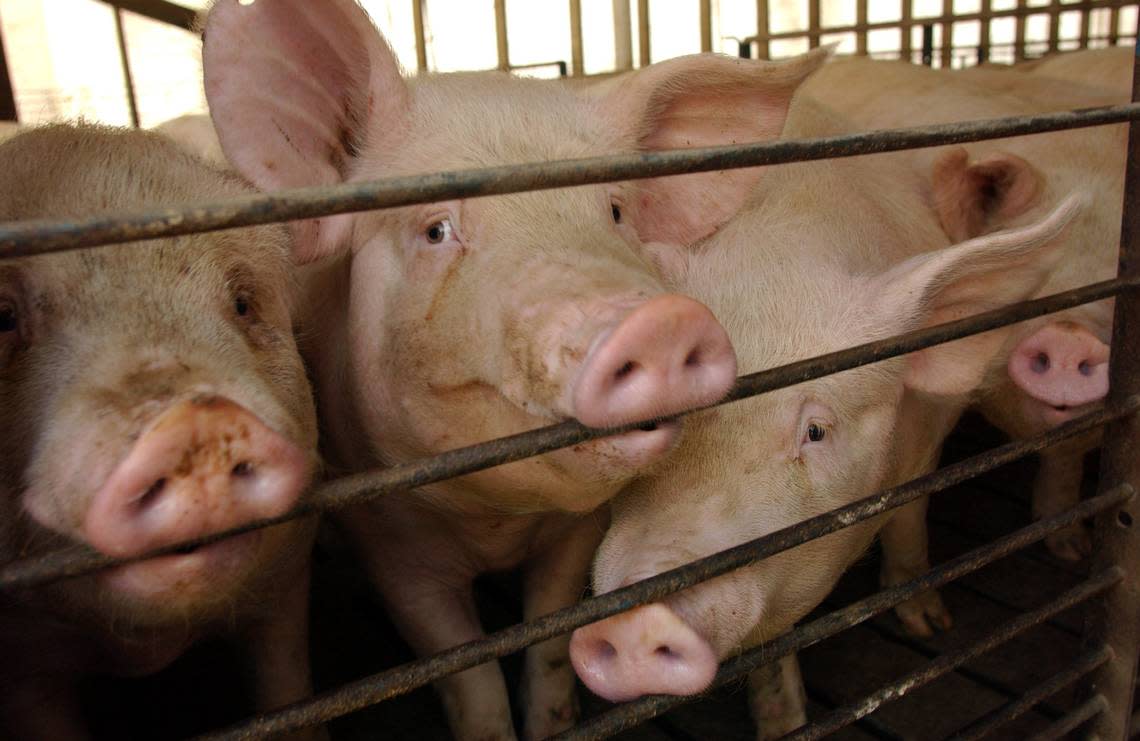Pork industry lawsuit draws new attention to cruel conditions in North Carolina

Motorists passing through parts of southeastern North Carolina can smell the presence of industrial hog farms. But few get to see – or would want to see – how the hogs are raised for slaughter.
That lack of visibility is by design. Seeing factory farming involving any animals tends to spoil the appetite and consumer demand. North Carolina and other states have passed “ag-gag” bills intended to block animal rights advocates and employee whistleblowers from exposing the mistreatment of animals. North Carolina’s law was found to be an unconstitutional violation of the First Amendment in 2020, but the state has appealed.
Now the pork industry’s determination to continue with a particularly cruel practice – the confinement of pregnant sows for months in cages so tight they can’t turn around – has brought more attention to factory farm practices that could spur at least modest reforms. That would be important progress for North Carolina, one of the nation’s largest pork producers.
In early October, the U.S. Supreme Court heard arguments in National Pork Producers Council v. Ross, a challenge to a 2018 California law known as Proposition 12. The law bars the sale of whole pork products from farms that keep sows in tight confinement cages known as gestation crates or stalls. The pork producers say complying with the law will drive up pork prices and amount to illegal interference with the economies of other states.
In North Carolina, the Pork Council, Farm Bureau, state Chamber joined other groups in filing briefs asking the Supreme Court to overturn the California law. “We hope the US Supreme Court will agree that no state has the authority to extend their laws into other states,” said Roy Lee Lindsey, CEO of the NC Pork Council. “Proposition 12 would dictate how North Carolina farmers must raise pigs if we want to sell pork in California.”
No matter how the court rules, the resistance by pork producers has already backfired by calling national attention to a cruel practice the industry would rather not have consumers think about. For hogs, intelligent and social animals, the confinement causes anguish and their close proximity raises the incidence of infections that require more antibiotics.
Chris Green, executive director of the Harvard Law School Animal Law & Policy Program, told me the pork industry “sort of shot themselves in the foot” by pressing this case to the top of the legal system. “The more the public learns, the more turned off they are by the idea that they are contributing to that kind of suffering.”
The NC Pork Council said the gestation stalls actually protect pregnant sows from being injured by more aggressive sows. It notes that the American Veterinary Medical Association and the American Association of Swine Veterinarians approve of the use of gestation stalls.
Veterinarians may approve of the practice, but hogs certainly don’t. And that means many consumers won’t approve either. That’s why in California – which represents 13 percent of the national pork market – Proposition 12 passed with 62 percent of the vote. Several other states have passed similar ballot initiatives barring the sale of food produced through practices that animal protection advocates regard as cruel.
The pork industry’s opposition is particularly reprehensible because the law calls for only modest changes. Proposition 12, which also sets space minimums for hens and cows, requires only that sows kept for the purpose of breeding have at least 24 square feet to move about, a space of about 5 feet by 5 feet per hog.
Ending the severe confinement of hogs is not only about hogs. It is about humans and our responsibility to be humane toward other creatures. The pork industry should accept that responsibility - or expect more rejection from consumers who don’t want to be complicit in cruelty to animals.
Associate opinion editor Ned Barnett can be reached at 919-829-4512, or nbarnett@ newsobserver.com
